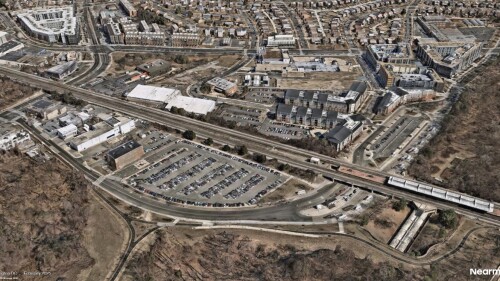Los Angeles has a new mayor whose first act was to declare a Homelessness Emergency. During her campaign, candidate Karen Bass promised to house 17,000 of Los Angeles’ 42,000 unhoused residents. Now is the time to deliver on that goal.
Government can’t do it alone. To effectively confront the devastating conditions on our streets, we must focus on the root cause of homelessness. That’s the only way to end the suffering of those experiencing homelessness—and a community both angry and frustrated by this human catastrophe.
To be successful and sustainable, fighting homelessness in Los Angeles requires crisis intervention on two fronts: First, we must build more permanent housing and much more of it needs to be affordable. That is crucial both to stem the tide of those entering homelessness and to give those that are currently on the streets hope for a stable home. Second, we must build more transitional shelter of every type—more quickly and much, much more affordably. But shelter alone is not enough. We must provide the supportive services to aid our friends, neighbors, and relatives to recover from the traumas of poverty, mental illness, drug and alcohol dependence, and the other causes and effects of being unhoused.
For too long, these two goals have been posed against each other as if we should only focus on one or the other. But both are needed. Now.
Long-term encampments are intolerable, but simply breaking them up only makes the crisis worse. Without a place for unhoused people to go, we are wasting precious resources keeping them on the move, criminalizing their lives and compounding their misery. The new mayor’s “Inside Safe” approach aims to do it right—but to succeed many more housing options need to come online immediately.
Although people become unhoused for many individual reasons, the incontrovertible data confirms that the cause of widespread homelessness is simple: the lack of availability of affordable housing. Human suffering will always exist, but our suffering is made far more acute and less manageable without shelter. The availability of affordable housing, and all that it provides, is how we can alleviate the human suffering that is so painfully visible in the unhoused community living on our streets.
Professor Gregg Colburn and his colleague, Clayton Page Aldern, recently published their extensive research and findings in their work, Homelessness is a Housing Problem. Colburn frames the root cause of homelessness as a tragic game of musical chairs. If there is one less chair in the room when the music stops, who is most likely to wind up without a seat? Not surprisingly, those individuals in our society who are most vulnerable, whether due to physical, mental, or economic circumstances, or structural racism and social inequality, or a combination of each, are most likely to experience homelessness. When housing is scarce, Colburn argues that individual vulnerabilities are magnified. The tragic game of musical chairs continues with fewer chairs available to those least likely to find them.
Longer-Term Solutions
Developing more affordable housing requires an immediate commitment but implementation is a long-term game. The State of California has embarked on an aggressive legislative agenda to develop more housing throughout the state by creating a variety of housing mandates and incentives, including streamlining development and removing local development barriers and obstacles. This critically important housing agenda will be implemented over many years, if not decades, and, to be successful, local elected officials must be intolerant of nimbyism.
We therefore also need more immediate solutions to address homelessness in the short-term. The Los Angeles District Council embraces ULI’s global mission to “shape the future of the built environment for transformative impact in communities worldwide.” By convening the some of the best minds in the region and in our industry, we’ve hammered out a set of actionable strategies called “Housing Now!,” with the goal or promoting the development of supportive housing that is “cost effective, rapidly deployable and integrated with services.”
The ULI recommendations went beyond the first step of declaring a citywide state of emergency to expedite housing project approvals. We urged pursuing a full range of tactical measures including:
- Waiving unnecessary permitting fees for supportive housing projects;
- Creating a centralized L.A. City/County lead agency that can unify the work product of all City and County departments and eliminate existing permitting silos;
- Establishing a one-stop-shop for predevelopment of pre-approved templates for modular and prefabricated design;
- Activating mission-driven private and philanthropic capital to create affordable housing development financing alternatives to low income housing tax credits while leveraging local, state, & federal funding opportunities (such as the recently passed United to House LA, “Measure ULA,” projected to generate hundreds of millions of dollars in revenue annually to develop affordable and supportive housing projects)
- Changing housing placement criteria while ensuring appropriate services are available for varied populations.
For Mayor Bass to succeed in curbing homelessness, Angelenos must rally to support action on housing now. Our elected and public officials need the involvement and support of the real estate industry, both private and non-profit. State and local governments play a critically important role, but we are all in this together. We must all be clear eyed and unwavering in our focus. We need to build more housing of all types – and provide the services needed to help people help themselves.
RICK COLE is deputy chief controller for the City of Los Angeles. DAVID WAITE is a partner of Cox Castle & Nicholson. Cole and Waite Co-Chair the ULI-LA Homelessness Initiative Council.
Editor’s note: ULI recently launched its Homeless to Housed Initiative made possible by the generous gift of Caroline and Preston Butcher, and others.





